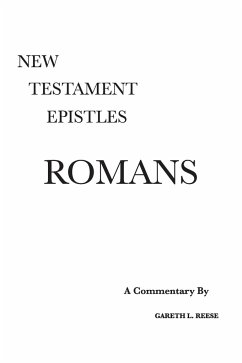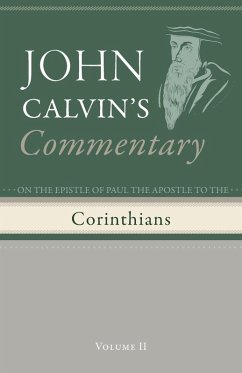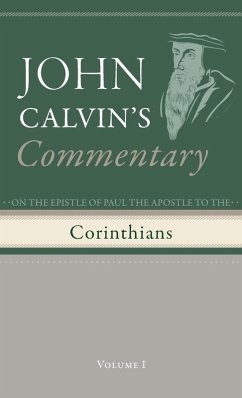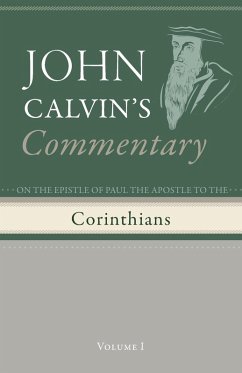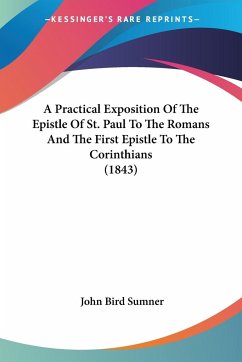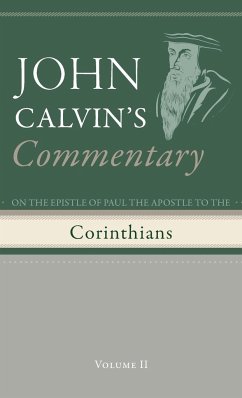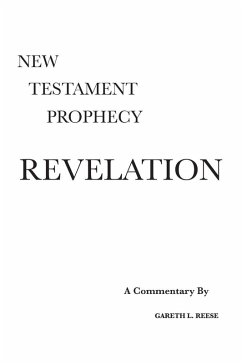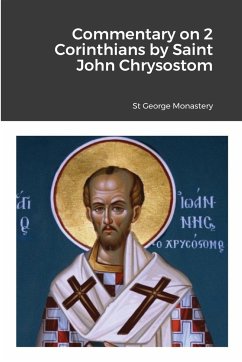
1 Corinthians
A Critical & Exegetical Commentary

PAYBACK Punkte
23 °P sammeln!
This is a phrase-by-phrase commentary and exposition of the New Testament book of 1 Corinthians. This commentary is in use as a college textbook, yet is suitable for the lay church member. 1 Corinthians was written by Paul during the same time period in his life as Romans, Galatians, and 2 Corinthians. It was written to a church with problems, that was struggling to find its maturity in Christ. Evidently, some Corinthian church members had come to Paul, seeking his help with a series of thorny problems (1:11). It appears these same church members also brought a letter from the church itself, a...
This is a phrase-by-phrase commentary and exposition of the New Testament book of 1 Corinthians. This commentary is in use as a college textbook, yet is suitable for the lay church member. 1 Corinthians was written by Paul during the same time period in his life as Romans, Galatians, and 2 Corinthians. It was written to a church with problems, that was struggling to find its maturity in Christ. Evidently, some Corinthian church members had come to Paul, seeking his help with a series of thorny problems (1:11). It appears these same church members also brought a letter from the church itself, asking Paul for help with a different set of issues (7:1). This combination led Paul to compose 1 Corinthians. The members of Chloe's household apparently brought four issues to Paul's attention: the growing factions inside the church body, a case of gross immorality being allowed to go unchecked, litigation betwixt Christians, and the abuse of Christian liberty encouraged by the proximity to the pagan temples which flourished in Corinth. The church's letter to Paul apparently sought guidance on six topics: concerning marriage, concerning things sacrificed to idols, concerning disorder in the public assembly, concerning the resurrection of the dead, concerning the Jerusalem collection, and concerning Apollos. As he addressed their questions, Paul time and again sought to establish "the word of the cross" (1:18). That very message carries the timeless Christian principles needed to help the church solve these and whatever other problems might arise in the future, so that the church might indeed become the temple of God (3:16-17) and the body of Christ (10:17, 11:29, 12:12-16). Attention to 1 Corinthians ebbs and flows. As issues arise to which this letter speaks, interest revives. Certainly, 1 Corinthians addresses contemporary issues: worship styles, charismatic gifts, the role of women in ministry, the value of the Lord's supper, sexual immorality and homosexuality, litigiousness, and even how much of one's old culture - whether in the U.S. or when doing cross-cultural missionary work - ought Christianity to accommodate. It is also worth noting the blood, sweat, and tears Paul expended in his efforts to solve these problems in Corinth: his own personal 18-month ministry to the church, multiple personal trips as he sought correctives, the letters of 1 & 2 Corinthians, and the in-person intervention of two of Paul's most trusted co-workers, Timothy and Titus. All of these actions were needed to bring resolution. Apparently, sin and its roots are at times hard to eradicate. Since this commentary presumes the God-inspired nature of all Biblical writing, the author seeks to harmonize the teachings of 1 Corinthians with other relevant Scriptures, and also helpfully examines the original language in which the epistles were written. A fully annotated bibliography of other commentaries on 1 Corinthians is included to encourage readers to extend their own studies. This commentary continues the author's series on the books of the New Testament, and is written from the unique standpoint of the Restoration Movement, a position which allows him to approach Scripture with no special theological doctrine or dogma to defend and explicate. This approach provides an unhindered freedom to listen to what the Holy Spirit would tell us within the pages of Scripture. By deliberately employing the time-honored grammitico-historical method of interpretation, the Word of God is allowed to impress upon our minds the intent the Divine Author had in mind. The author is Professor Emeritus of the New Testatment at Central Christian College of the Bibl





